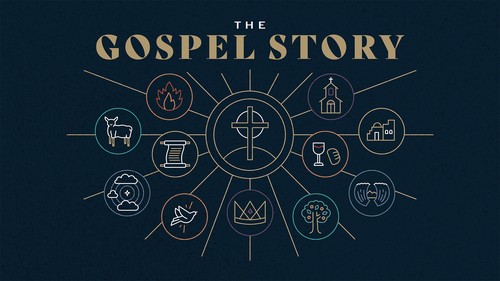The Gospel Story - Week 27

The Fall of Jerusalem
Read
Esther 7:1-10
Providence, comfort, and hope are the words that come to mind from the narrative of Esther. Providence in that there are too many things that fall into place at just the right time. God, in his sovereignty, is working providentially so that his people are not destroyed through an evil scheme. Comfort in that God responds to the bravery and courage of Esther and Mordecai in seeking to save their people, God’s people, from destruction. God did not abandon them, he blessed their words and movement for the sake of his people. Hope in that we can trust God that he will not abandon us, he is with us and is willing to use his providence for our good and safety. Imagine how life would feel without knowing or being confident that God will be with you when things get tense, sticky, or dangerous.
Providence, comfort, and hope are not just reserved for these epic narratives in scripture, but also for us, here and now, and on which we can rest and rely. Even when we don’t see it, God is working on our behalf; think of the Jews that were about to be destroyed and they may have not even known it. Yet, God was working on their behalf through Esther and Mordecai. When we allow ourselves to trust in the sovereignty and providence of God it leads us to a comfort that cannot be explained and a hope that draws us forward in the possibility of an abundant life. Just like the Jewish people in Esther, God does not desire to uncaringly abandon us in the trappings and condition of the world but works to release us from those trappings and calls us to be agents of hope that, in spite of the condition of the world, proclaim abundant life is possible.
Providence, comfort, and hope are not just reserved for these epic narratives in scripture, but also for us, here and now, and on which we can rest and rely. Even when we don’t see it, God is working on our behalf; think of the Jews that were about to be destroyed and they may have not even known it. Yet, God was working on their behalf through Esther and Mordecai. When we allow ourselves to trust in the sovereignty and providence of God it leads us to a comfort that cannot be explained and a hope that draws us forward in the possibility of an abundant life. Just like the Jewish people in Esther, God does not desire to uncaringly abandon us in the trappings and condition of the world but works to release us from those trappings and calls us to be agents of hope that, in spite of the condition of the world, proclaim abundant life is possible.
Questions
- Did you know that God’s name was never mentioned in the book of Esther? What function do you think this played for Israelites reading the story and remembering it each year with their festival of Purim?
- Is there any part of this story that feels confusing to you?
- How is the way Esther lived her life in exile similar or different from the way Daniel lived his life in exile? Was one of them more “right” or “moral” than the other? Why or why not?
- Is there anywhere in your life that it feels like it’s too “messy” for God to work? Do you ever catch yourself trying to “limit” God by only expecting him to work in certain ways or certain places?
- If the point of Esther is that God can work in the middle of our mess, what does that mean for our lives?
Supporting Resources
Posted in The Gospel Story
Recent
Archive
2025
August
2023
2022
June
July
August
September
October
November

No Comments